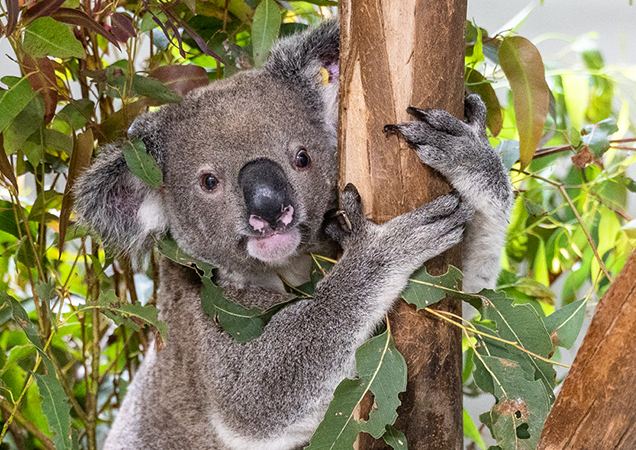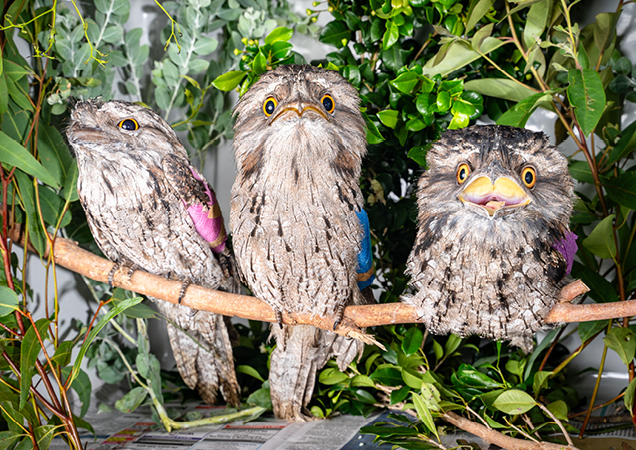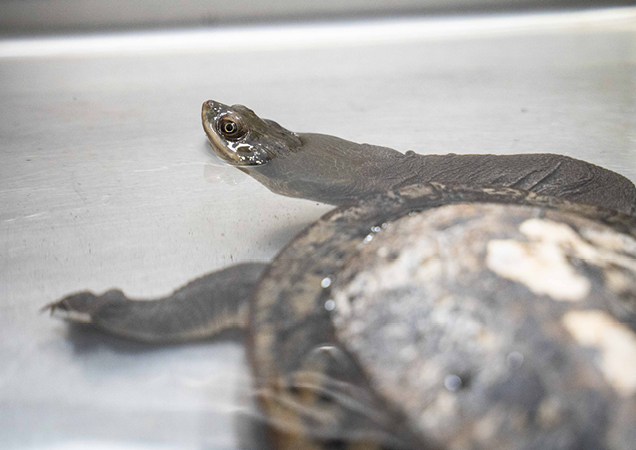RSPCA Queensland regularly fields calls for assistance from the public relating to animal-vehicle collisions. Animal collision hotspots in Queensland last year included Brisbane, Goondiwindi, Townsville, and Charters Towers2.
Our dedicated Rescue Team and Wildlife Hospital staff and volunteers work tirelessly to ensure animals are given the best chance of survival.
Take Jay the koala for example, who was hit by a car while crossing a busy Brisbane road. RSPCA Queensland Rescue Officers attended and were assisted by two QFES crews to remove Jay from a nearby tree. Jay was transported to our Brisbane Wildlife Hospital for treatment and rehabilitation, suffering a fractured and swollen cheek. He thankfully recovered from his ordeal and was able to be released back into the wild.

This Short Beaked Echidna suffered beak abrasions and was missing quills after being hit by a car on a highway in Ipswich. After some treatment from our committed staff and volunteers, they were transported to a wildlife carer to continue their rehabilitation journey.

Our metropolitan areas saw a substantial increase in animal-vehicle collision claims, with Brisbane’s north and Ipswich both rising by 40%1 in the past year.
These three Tawny Frogmouths from different walks of life all shared something in common when they were brought into our RSPCA Wildlife Hospital sporting identical left-wing fractures. The trio had sustained their injuries having been hit by cars in different Brisbane suburbs. Following surgical treatments and rehabilitation, the trio were released back into their natural habitats.

This broad-shelled turtle suffered two deep abrasions and a fracture after being hit by a car at Mount Tamborine. Following a surgical procedure and a two-month stay at our Wildlife Hospital to ensure the fracture had healed properly, the turtle was successfully released back into the wild.








